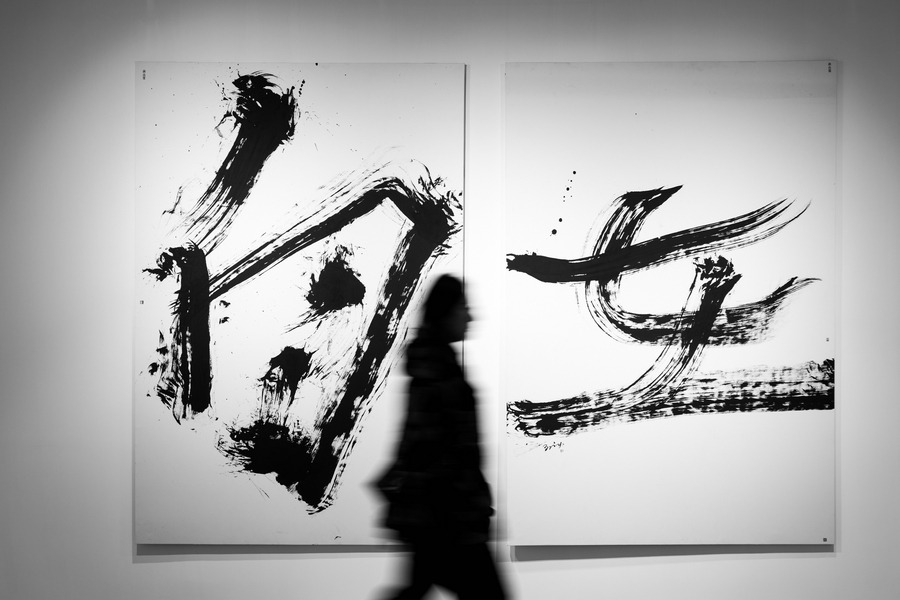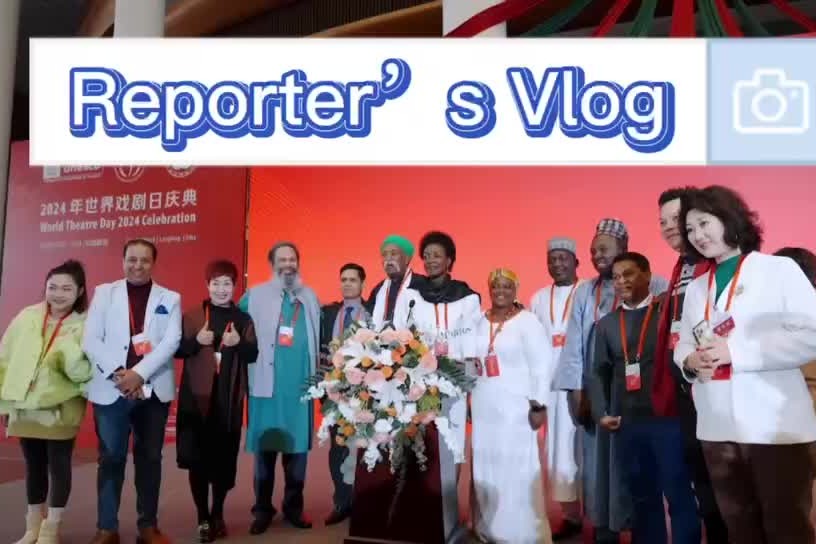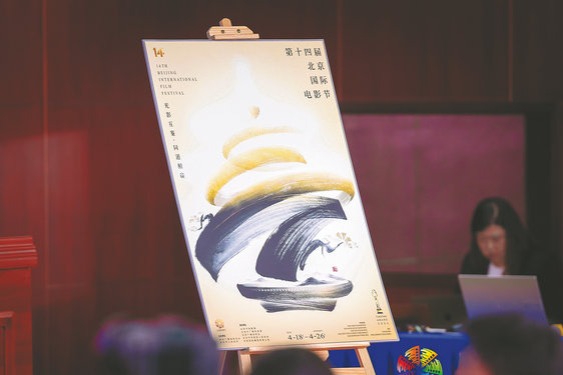Hitting the right notes

China's music industry emerges as a global powerhouse as streaming services boost revenues, IP protection improves
With a changing digital landscape, shifting consumer habits and better protection for intellectual property, China's music industry is increasingly dancing to a different tune.
And as streaming platforms change the way music lovers get their fix, the Chinese market is emerging as a global powerhouse, even while still in its infancy.
Just how much things have changed will be seen when China's largest music streaming company, Tencent Music Entertainment Group, files for an anticipated initial public offering that could value the company at as much as $30 billion.
The expected move comes after the successful New York Stock Exchange debut in early April of Swedish streaming company Spotify Technology.
Just last December, when Spotify acquired a 9 percent stake in Tencent Music in a share swap, the latter company was valued at $12.5 billion. And if its New York listing goes through, it will be among the biggest ever in the tech world.
Streaming revenue in China likely doubled to 43.2 billion yuan ($6.8 billion) last year, according to estimates by iResearch Consulting Group. That is remarkable growth from 7.4 billion yuan in 2015 and 20.8 billion yuan in 2016.
Matthieu David-Experton, CEO of market research firm Daxue Consulting, said the growth in China is part of a global trend.
"There has been a rise in streaming and digital revenues not just in China but globally. However, it is accompanied by a decline of physical record sales and digital downloads," said David-Experton.
As many as 80 percent of respondents to a Daxue survey in China listened to digital albums, and 70 percent consumed digital singles, but only 68 percent of music listeners actually bought physical records.
Daxue also found that music lovers in second-tier cities were more likely to purchase physical music formats like CDs. But even then, those purchases only made up one-fourth of their total music expenditure, while two-thirds of music buyers used streaming services.
That is not to say all traditional forms of recording are fading. David-Experton noted that vinyl records are enjoying a renaissance of sorts.
"Sales of vinyl albums have increased. Audiophiles claim the sound is warmer; others love to have a tangible product to collect, and the vintage feel of it," he said.
"But digital streaming is definitely the main form of consumption now," he said, adding that Daxue's research found that millennials spend about 16 hours per week on average listening to music that way.
Two-thirds of the music they listen to is delivered via mobile devices through streaming or downloads, with the remainder on computers and other audio devices.
The proliferation of mobile devices has an effect on paid streaming.
"There are serious growth opportunities for the paying subscriptions sector. More and more people are willing to pay for monthly subscriptions because of the growing number of mobile users," said David-Experton.
Tencent is the streaming market leader with a lion's share of 70 percent of the Chinese market, according to the International Federation of the Phonographic Industry. It owns three of the leading streaming platforms in China: QQ Music, Kugou and Kuwou.
But out of some 600 million subscribers, just 15 million are paying. That translates to only 3 percent of the total user base, compared to 20 percent in other countries, despite the low price of subscriptions at about 10 yuan per month.
However, according to David-Experton, the situation is changing. "The main actor Tencent wants to fight music piracy by conditioning the Chinese public to pay for digital tunes," he said.
As China's music industry improves the awareness about monetizing the streams of consumption, the fight to protect IP will increase.
"China's IP rights environment has changed a lot for the better in the last few years," noted Jive Lai, general manager and head of marketing for music services consultancy firm Outdustry.
"However, it is still a work in progress and there are lots more areas to improve on, such as public performance rights."
And radio remains a significant force in China. "A lot of people in China still listen to the radio, particularly when they are on the road," said Lai. "It remains not just an important tastemaker, but also a possible new revenue stream to tap there."
Improving the framework for monetizing the way content is used can allow for more revenue streams to open. President Xi Jinping's recent declaration to step up IP protection in China bodes well for improvements in this area.
With a more secure ecosystem in place, companies can look at ways to tap the use of music IP, as is being done with the educational cartoon series Bodhi and Friends.
The franchise, broadcast on CCTV in China, has developed hundreds of English-language pop songs with accompanying music videos for an online learning platform aimed at children.
Some of the songs were also released as downloadable 'visual albums' a few years ago and topped the children's music charts on iTunes US and Hong Kong.
Colman Ho, marketing manager for the series, said they are taking a more creative approach in using its IP for the Chinese mainland market.
"Besides putting the songs and its music videos on all the major streaming platforms in China, we are also using them as content in soft toys and even in bilingual books," said Ho, who added that they had distributed around 2 million books through a deal with fast-food chain KFC last year.
The books were based on the songs from the Bodhi and Friends franchise and came with a link to stream the music videos to provide a digital learning experience.
"The content audiences consume has remained largely the same, be it in the form of music or videos. However, the way of delivering them has changed greatly," said Ho.
And so has the way of monetizing them, it seems.
Both Lai and David-Experton agree that for popular artists, brand endorsement deals would probably be the most lucrative revenue of all.
But one of the ways that music is enjoyed and still has not changed is live performance.
"Concert tours and music festivals are very important points of revenue and music consumption," said Lai. "The months of May, September and November are the peak periods for live performances. There's a festival almost every weekend through those months," she added.
China hosts an array of music festivals for different genres, ranging from jazz at the JZ Music Festival and indie acts at Strawberry Music Festival to rock performances at Donghi Music Festival and classical opera at the Beijing Music Festival.
And it is big business. The total sales of tickets for concerts and festivals in China amounted to 3.2 billion yuan for 2016.
Even China's infrastructure initiative, the Belt and Road, has spawned its own themed music season, which ran for the second time in Shenzhen, South China's Guangdong province, in March and April 2018.
It featured musicians and orchestras from China, Argentina, Europe and the US staging around 17 performances.
The season ended on April 29 with a grand closing ceremony directed by Shen Wei, a well-known Chinese-American choreographer, painter and director who has been commissioned by the 2008 Beijing Summer Olympics opening ceremony, the Metropolitan Museum of Art, and contemporary ballet company Les Ballets de Monte Carlo.
"Though music may be consumed and obtained differently these days, nothing can replicate the experience of a live performance," said Lai.
But that, too, is increasingly being brought into the digital realm.
"The promotion by Tencent of both offline festivals and online events has also led to a rise of international music popularity," said David-Experton, who noted that Tencent Video's music video brand, Live Music, organized 55 online concerts in 2015.
With so many shifts and changes, Lai likens the music industry in China to the "Wild West". "A campaign to launch a music act that works elsewhere in the world will not translate in China due to the many differences," said Lai.
"It's like the wild, Wild West here. There have been so many changes in the last few years alone, and that's what makes the music industry in the Far East so exciting."




































